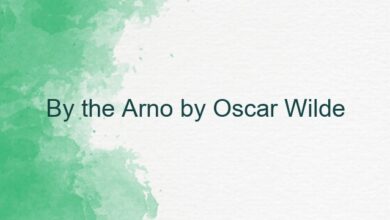
Avt’handils Tale as Told to Asmath in the Cave
231
HE came down and loosed his horse, which he had tied
to the tree, he mounted and rode up; the door of the cave
was open, the heart-shaken, tear-flooded maiden ran out
thence; she thought the rose-faced, crystal-haloed one was
come back.
232
SHE knew not the face, it was not like the face of that
knight; swiftly she turned, with a cry she made for rock and
tree; the knight leaped from his horse, seized her like a
partridge in a net; the rocks resounded with the maid’s
monotonous cry.
233
SHE yielded not to that knight; even the sight of him
was hateful. Like a partridge under an eagle she fluttered
hither and thither; she called on a certain Tariel for help,
but he succoured her not. Avt’handil threw himself on his
knees; he entreated her with his fingers.
234
HE said: “Hush! what ill can I do thee? I am a man of
Adam’s race. I have seen those roses and violets grown pale.
Tell me something of him. Who is the cypress-formed, the
halo-faced ? I shall do nought else to thee, be comforted,
cry not thus loudly.”
235
THE weeping girl said—and her speech was more like
discussion than complaint.—”If thou be not mad, let me go;
if thou art mad, return to reason. Now thou lightly askest
me to tell thee a very hard matter; try not in vain, look
not to me to tell his story.”
236
AGAIN she said: “0 knight, what wilt thou, or what
dost thou request of me ? This thing cannot be even written
with the pen. Once thou shalt say ‘Tell me!’ a hundred
times I shall tell thee ‘No!’ As smiling is better than
weeping, so I prefer mourning to song.”
237
“MAIDEN, thou knowest not whence I come, what woes I
have endured! For as long as I have sought tidings, from
none have I heard them. I have found thee; however much
my words may annoy thee, I cannot let thee go till thou tell
me. Be not bashful with me.”
238
THE maiden said: “Why have I fallen in with thee? Who
am I ? Or who art thou ? The sun is not near me, this thou
knewest, 0 hoarfrost, therefore thou thus annoyest me;
long discourse is tedious, so I shall speak shortly to thee;
on no account shall I tell thee aught, do whatsoever thou
wilt.”
239
YET again he adjured her, he threw himself on his knees
before her, but nought could he win from her; he wearied of
entreaty, his indignation mounted to his face, blood flowed
to his eyes, he arose, he drew her by the hair, he put a
knife to her throat.
240
THUS he spoke: “How can I forgive thee so much ill-will ?
If I weep, shall the tear be in vain. It is better for thee
to tell me, I shall trouble thee no more; if not, may God
slay mine enemy as I slay thee!”
241
THE maid replied: “Thou hast done exceeding ill to
think of using force. If thou kill me not I shall not die;
I am hale and alive. Why shall I tell thee anything until
the time when I shall no longer see woes, and if thou kill
me I shall have no head to converse with thee.
242
AGAIN she said: “Oh, why didst thou find me! Who art
thou that speakest with me ? Who ? I cannot be made to tell
this story with living tongue. I will make thee kill me at
mine own wish; like a despised letter, easily shalt thou
tear me.
243
“THINK not that death would be suffering to me, for it
would free me from weeping; it is the drier-up of the ford of
tears; the whole world seems to me as straw, even so do I
weigh it; I know not who thou art, that I should tell thee
trusty words.”
244
THE knight said to himself: “Thus shall I not make her
speak, I must think of some other way; it is better to ponder
the matter.” He let her go, and sat down apart; he wept, he
began to shed tears. He said to the maiden: “I have angered
thee; now I know not, alas! how I shall survive.”
245
THE maiden sat morose, she is sulky, she is not yet
sweetened. Avt’handil sits below weeping; no longer does he
speak. In the rose-garden the pool of tears is dammed up.
The maiden, too, weeps over yonder, her heart softening
towards him.
246
She pitied the weeping knight, therefore her hot tears
flowed, but she sat, strange to the stranger, she spake
not. The knight perceived that her hasty thoughts towards
him were calmed; with flowing tears he entreated her;
he arose and bent his knee before her.
247
HE said: “I know that now I am by no means to hope
from thee; I have angered thee; I remain a stranger to thee
and thus lonely; yet even now I have hope for myself from
thee, for it is said that sin shall be forgiven unto seven
times.
248
“THOUGH my beginning in service has pleased thee ill,
it is fitting to pity the lover; understand thou this: from
any other, whomsoever, I can have no aid, none is my
strength. I yield thee my life for my heart’s sake. What
more can I do?”
249
WHEN the maid heard from the knight of his love, with
heart sobs she began to shed tears a hundredfold more;
again she raised her voice in wailing, she smiled not. God
gave Avt’handil his wish, his heart’s comfort.
250
HE said to himself: “These words have changed her
colour; doubtless her tears flow faster for that she is mad
for someone.” He spoke once more: “0 sister, a lover is
pitied even by his foes; thou, too, knowest that he himself
seeks death, he shuns it not.
251
“I AM a lover, a madman to whom life is unbearable.
My sun sent me to seek that knight. Even a cloud not
reach me where I have been on that quest. I have found thy
heart; his to thee, thine to him.
252
“HIS face I have imprinted on my heart like a holy
picture. For him mad, cut off, have I given up all my joy.
One of two things do thou to me: make me a prisoner or set
me free, give me life or slay me, adding grief to grief.”
253
THE maiden spoke to the knight a word more pleasant than her first: “What thou hast now thought of is much better; just now thou didst sow enmity in my heart, now thou hast found in me a friend more sisterly than a sister.
254
“THEN, since thou hast thought of love as thine aid,
henceforth it will not be that I shall not be thy servant;
if I devote not myself to thee, I shall make thee mad, I
shall make thee sad; I shall die for thy sake if I find not
some means to help thee.
255
“NOW, whatever I tell thee, if thou wilt be obedient to
me therein thou shalt meet whatever thou seekest, thou
shalt certainly not fail; if thou hearkenest not to me thou
shalt not find, let thy tears flow as will;
with the world shall come upon thee, thou shalt die, thou
shalt be put to shame.”
256
THE knight replied: “This only resembles one thing: Two
men were journeying somewhere along some road; the one
who was behind saw the one in front fall into a well. He
came up, called down, weeps and cries ‘Woe!’
257
“THUS he spoke: ‘Comrade, stay there, wait for me, I
go to bring ropes, I want to pull thee out.’ The man who
was beneath laughed, he marvelled greatly, he shouted up:
‘Unless I wait, whither can I flee from thee, whither can
I go?’
258
“NOW, sister, thou boldest the rope about my neck;
without thee I can undertake nothing; whatever thou doest
to me rests with thee, thou art balm to the mad. Otherwise
who would bind his sound head with hay-ropes ?”
259
THE maid replied: “Thy discourse, 0 knight, pleases me.
Doubtless thou art some good knight, worthy of the praise
of the wise. Since thou hast heretofore suffered such griefs,
hearken to what I tell thee, and thou hast found what thou
seekest.
260
“NOWHERE can news of that knight be found. If he
himself tell thee not it will not be told; none other shouldst
thou believe. If thou canst wait so long, wait until he come.
Be calm; freeze not the rose, let not be snowed up in
tears.
261
“I WILL tell thee our names if thou wishest to know
them: Tariel is the name of that distracted knight; I amcalled Asmat’h, whom the hot fire burns, sigh upon sigh,
not once alone, but many times.
262
“MORE words about him than these I cannot tell thee. The
elegant, slender-formed roams the plain. I eat, alas! alone
of the meat brought by him from the chase. He may come
anon, I know not, or he may tarry a long time.
263
“I ENTREAT thee to wait; go not elsewhere. When he
comes I shall plead with him; it may be I shall be able to
do something. I shall make you known to each other; I shall
make him love thee. He himself will tell thee his story; thou
shalt make thy beloved to rejoice.”
264
THE knight listened to the maid, he was obedient, he
submitted. Thereupon they looked round, they heard a
splash from the glen, they saw the moon come forth from
the water, its rays beaming. They hastened back: they
made no long tarrying there.
265
THE maid said: “0 knight. God give thee soon what thou
desirest; but make thyself unseen, hide thyself inside. No
human being is disobedient to that knight; perchance I
may so contrive that the sight of thee anger him not.”
266
THE maiden hastily hid Avt’handil secretly in the cave.
That knight alighted from his horse; his quiver and sword
adorn him. They wept aloud, their tears flowing even to the
sea. Avt’handil gazed forth, himself hidden from view.
267
THE bath of tears turned the crystal to the colour of
jasper. A long time the knight and that black-robed maiden
wept. She unbuckled his armour and took it in; she also led
in the horse. They were silent; the black knife of jet cut
off the tears.
268
AVT’HANDIL watched, a prisoner but now freed from
his dungeon. The maid laid down the tiger’s skin, the
knight sat upon it, he sighs with added grief; the jetty
eyelashes are plaited by tears of blood.
269
THAT maiden betook herself to the lighting of a gentle
fire with a steel; she thought he would eat meat roasted,
whole; she gave it to him, he bit off a piece, it was difficult
for him to eat, he had not strength; he began to spit it
out unchewed.
270
HE lay down a little, he fell asleep, but only for a short
time; he was afraid, he screamed aloud, he leaped up as
if dazed, he cried and incessantly beat his breast with a
stone and his head with a stick; the maiden sits apart
looking at him, and scratches her face.
271
“WHY hast thou returned?” she asked. “Tell me what has
happened to thee.” He answered: “I came upon a certain
king hunting; he had countless soldiers, heavy weighed their
baggage, he hunted in that plain where beaters were
scattered.
272
“IT was melancholy for me to see men, the fire flamed
up still more; I came not near to meet him; I pitied myself.
I returned pale from them. I hid in the wood. I thought:
‘If he pursues me no more, I shall go away at daybreak
tomorrow.'”
273
tears sprang forth a hundredfold, ten
thousandfold more THE maiden’s. She said: “Thou roamest alone with
wild beasts in the deep forest, thou approachest no man for
converse and entertainment; thou canst not help her thus;
why dost thou waste thy days in vain ?
274
“THOU hast fared over the whole face of the earth; how
couldst thou not find one man in whom to take pleasure,
and who could be with thee without making thee mad,
though it would not lessen thy grief? If thou diest and she
perisheth, what doth this profit thee ?”
275
HE said: “0 sister, this is like thy heart, but for this
wound there is no balm upon earth. Who can find such
a man as hath not yet come into the world ? My joy is
death, the severance of flesh and soul.
276
“WHERE, why should God cause a man to be born under
the same planet as I, even if I desired his companionship
and converse ? Who could bear my woes, or even attempt it ?
Save thee, sister, I have no human being anywhere.”
277
THE maid said: “Be not angry with me, I fear and entreat
thee; since God has appointed me thy vizier, I cannot
conceal the best that I know in the matter: to go to
extremes is of no use; thou hast overstepped the bounds.”
278
THE knight replied: “I know not what thou askest of me;
tell me clearly. How can I create a man for my service
without God? God needs me to be unhappy; what can I do?
Of a truth I am become as a wild beast, to this pass have
I brought myself.”
279
THE maid again spoke: “I have harassed thee with
overmuch advice, but if I could find a man who would
come to thee of his own free will, who would stay near
thee, who would rejoice thee by his acquaintance, wilt
thou swear not to kill him nor do him any hurt ?”
280
HE answered: “If thou wilt show him to me, greatly
shall I rejoice at sight of him. I swear by the love of her
for whose sake I wander mad in the fields, I shall do nought
unpleasing, I shall never cause any bitterness to him; I
shall be pleasant and love him, and do all I can to be
amiable.”
The Meeting of Tariel and Avt’handil
281
THE maid rose and went to bring that knight. “He is
not angry,” quoth she, to encourage him. She took him by
the hand and led him forth, like the full moon. When
Tariel saw him he thought him like the sun.
282
TARIEL met him. They were both fit to be ranked as
suns, or as the moon in heaven, cloudless, spreading her
rays on the plain beneath. Compared with them the
aloe-tree was of no worth; they were like the seven planets;
to what else shall I liken them ?
283
THEY kissed each other, they were not bashful at being
strangers; they opened the rose, from their lips their white
teeth shone transparent. They embraced each other’s neck,
together they wept; their jacinth, which was worth rubies,
they turned into amber.
284
THE knight turned, he grasped Avt’handil’s hand in his
hand; they sat down together, and wept long with hot tears.
Asmat’h calmed them with wonderful words: “Slay not
yourselves; darken not the sun with your eclipse.”
285
TARIEL’S rose was only covered with a light frost, not
frozen. He said to Avt’handil: “Haste, tell me thy secret.
Who art thou ? Whence art thou come ? Where is thy home ?
As for me, death has forgotten me; even by it am I
abandoned.”
286
AVT’HANDIL gave answer; beautiful are his words:
“0 lion and hero Tariel, thou who behavest gently, I am an
Arabian, from the court of Arabia; I am consumed by love,
unquenchable fire burns me.
287
“I LOVE the daughter of my lord; her lusty-armed servants
now view her as their queen. Though thou knowest me not,
I have seen thee, if thou wilt call it to mind. Dost thou
remember when thou slowest the strong-armed slaves ?
288
“WE saw thee roaming in the plain, and we came upon
thee. My lord was angry with thee, and we quarrelled fiercely
with thee. We called thee, thou earnest not, we pursued
thee with soldiers; thou didst dye the fields crimson with
the blood thou madest to flow.
289
“THOU didst cut the heads of all with a whip, without
a sword. The king mounted, thou wert lost to us, we could
not cut off thy track; like a Kadj thou wert hidden, the
slaves were terrified. This enraged us still more; we were
completely stunned.
290
“THE king became gloomy; you know that a monarch
also has humours. They looked for thee, they sought thee
everywhere, they traced a map. They could find none who
had seen thee, neither young nor old. Now she has sent me,
she to whom neither sun nor ether is to be compared.
291
“SHE said to me: ‘Learn for me news of that vanished sun;
then will I do that which thou desirest.’ She told me that
for three years the stream of tears was to flow without
her; dost thou not marvel that I could bear the lack of
the sight of her smile?
292
“UNTIL now I have seen no man who saw thee. I saw
Kurds who spoke rudely with joy; thou didst strike them
with thy whip; one thou madest like a corpse; they whose
brother was dying told me.”
293
TARIEL recalled their bygone fight. He said: “I remember
the affair, though it happened long ago. I saw thee and
thy master together at the chase. I was weeping because I was
thinking, alas! of my destroyer.
294
“WHAT did you want with me ? What did you desire ?
What had we in common? You, mighty, were sporting;
we bathed our cheeks in tears. When you set the slaves
upon me you dared to take me; now, methinks, instead of
capturing me you bare away corpses.
295
“I LOOKED round when I saw thy lord approach me, I had
pity on his kingship; therefore I laid not my hands upon
him, I fled before your eyes, I said nothing. My horse looks
an invisible spirit, to what else can I compare him ?
296
“BEFORE a man can blink or wink the eye, I can flee
that which I know to be unpleasant. Those Kurds, on the other
hand, I did not consider myself unjust to them; their
overbearance and my prowess ill became them.
297
“NOW thou art come with good intent, the sight of thy
face rejoices nie, 0 cypress-tormed, sunlike-faced, brave as
a hero; but thou hast toiled, thou art not untried by
trouble; hard is it to find a man abandoned by God in
heaven”.
298
AVTHANDIL said: “How dost thou praise me, thou
worthy of the praise of the tongue of the wise ? What am
I to deserve such praise from thee ? Thou art the image of
the one sun, the light of heaven above, for the misery of
the flowing of so many tears cannot change thee.
299
“THIS day has made nie forget her who darkened my heart.
I renounce her service; дs for that, it shall be as thou
wishest. Thus, though a jacinth is better, still a thousand
times more do I desire enamel. I shall stay near thee till
death, more than this I desire not.”
300
TARIEL said: “Thy heart now is warm to me. I am
amazed. What service worthy of thine attachment have I
done for thee ? But such is the law: lover pities lover.
Thou art parted from thy beloved; what can recompense
thee for this ?
301
“THOU art come forth to seek me in thy lady’s service.
God has made thee find me. Thou also hast endeavoured
manfully. But how shall I teil thee why I am thus
wandering ? If I speak of it, hot fire will fire me; I shall
become a flame, a smoke.”
302
UPON this Tariel was silent, burned and enflamed. He
said to Asmat’h: “Since thou hast been near me all the
time, how dost thou not know that this bruised bruise
is incurable ? Anew this weeping knight burns nie; I am his
debtor for tears.
303
“HOW can man find that which has not been created by
God ? Therefore has my heart been born in the embers of a
glowing furnace. My path has been cut ofF, I am bound in
a net, caught in a snare. Of my feasts—only straw for my
bed and my nabadi1 remain.
304
“BUT merciful God, whom the sun has made known to us,
has accorded me two blessings to-day: the first is that two
lovers will be reunited by me, and the second that mayhap
the flaming fire will be unable to consume me.”
305
HE said to the knight: “Whatever man takes to himself
a brother—ay, or a sister—must have not care of death and
trouble for their sake. How should God save the one if He
cause not the other to perish ? Listen, and I shall teil thee
whatever befall me.”
306
HE said to Asmat’h: “Come, sit down here, bring water
with thee, sprinkle me when fainting, bathe my breast. If
thou seest me a corpse, weep for me, sob ceaselessly, dig
a grave for me, here let the earth cradle me.”
307
HE sat down unbuttoned to teil his tale; he laid bare his
shoulders. Like the sun clad in clouds he sat; a long time
he shed no ray. He could not open his lips to speak; he
clenched them. Then he drew his breath, cried out, hot tears
gushed forth.
308
HE sobbed: “O beloved, mine own, lost to me! My hope and
life, my thought, my soul, my heart! Who cut thee off I
know not, O heart a hundred times kindled!”
1 Nabadi-a shaggy cloak of goat-skin.
The Telling of His Tale by Tariel When He First Told It to Avt’handil
309
“HEARKEN, give heed to the hearing of my tidings,
discourses and deeds such that I can scarce utter them!
She who maddens me, for whom I am overpowered by
melancholy, for whom flow streams of blood, from her I
never expect comfort.
310
“THOU knowest, as every man knows, of India’s seven
kings. P’harsadan possessed six kingdoms; he was sovereign,
generous, rich, bold, ruier over kings, in form a lion, in
face a sun, a conqueror in battle, a leader of squadrons.
311
“MY father sat on the seventh throne, king, terror of
adversaries; Saridan was his name; not underhanded in
the destruction of enemies, none dared offend him either
openly or secretly; he hunted and made merry, careless
of Fate.
312
“HE hated solitude; it created hosts of cares in his heart.
He said to himself: ‘By conquest I have taken from foes
the vicinage of the marches, I have chased them forth
everywhere, I am seated in power, I have pomp and might’;
he said: ‘I will go and enjoy the favour of King P’harsadan.’
313
“HE resolved to despatch an envoy to P’harsadan; he
sent a message saying: Thou hast the rule of all India; now
I also wish to exhibit before you the power of my heart;
may the glory of my faithfui Service remain !’
314
“P’HARSADAN, on hearing those tidings, made great
jubilation. He sent a message: ”I, ruier of the lands, give
thanks to God, because thou, a king like me enthroned in
India, hast done this; now come, I shall honour thee like
a brother and parent.’
315
“HE bestowed on him one kingdom well worthy of a good
knight, also the dignity of Amirbar-the Amirbar in India is
also Amirspasalari; when he sat as king, he was not absolute:
he only lacked the overlordship, in all eise he was sovereign lord.
316
“THE king considered my father equal with himself; he
said: ‘I wager that no man has an Amirbar like mine.’
They waged war and they hunted; they forced their enemies
to make peace. I am not like him, as no other man is like me.
317
“THE king and the sun-like queen had no child, for this
they were sad; a time came when the armies were seized
with alarm thereat. Woe befall that cursed day when I was
given to the Amirbar! The king said: ‘I shall rear him as my
son; he is even of mine own race.’
318
“THE king and queen took me as their child, they brought
me up as lord of all the soldiers and countries, they gave me
wise men to instruct me in the behaviour and deportment
of kings. I grew up, I became like the sun to look upon, like
a lion in
319
“ASMAT’H, tell me whatever thou knowest to be false in
my story! When I was five years old I was like an opened
rosebud; to me it appeared no labour to slay a lion-it was
like a sparrow. P’harsadan cared not that he had no son.
320
“ASMAT’H, thou art witness of my pallor! I was fairer in
beauty than the sun, as the hour of dawn than darkness.
Those who saw me said: ‘He is like a nursling of Eden.’
My person now is but a shadow of what it was then.
321
“I WAS five years old when the queen became with child.”
When he had said this the youth sighed, and weeping said:
“She bare a daughter.” He was like to faint; Asmat’h
sprinkled water on his breast. He said: “She for whom
these flames now burn me was like the sun even then.
322
“THE tongue with which I now speak cannot utter the
praise of her. P’harsadan sat down to announce the good
news with jubilation and pomp. From everywhere came
kings bringing many kinds of gifts. They gave away
treasure; they filled the soldiers with presents.
323
“MISSIVE followed missive when the queen was confined.
Many messengers came, all India was informed. The moon
and the sun rejoiced, the sky sparkled with joy, every
human being was happy and frohcked in merriment.
324
“THE guests at the birth festivities separated. They began
to rear nie and the maiden; even then she was like the
sun’s rays augmented threefold; the king and queen loved
us and looked on us alike. Now shall I utter the name of her
for whom my heart is consumed by flame.”
325
THE knight swooned when he sought to mention her name.
Avt’handil also wept; his fire made his heart like soot. The
maiden revived Tariel; she sprinkled water on his breast.
He said: “Hearken! but this truly is the day of my death.
326
“THAT maiden was called by the name Nestan-Daredjan.
When she was seven years old she was a gentle and wise maid,
moon-like, not equalled by the sun in beauty; from her how
can the heart bear Separation, even if it were adamant or
forged steel?
327
“SO she grew up, and I was able to go to battle. Since
the king looked upon the maid as the heir to the kingship.
he gave me back into the hands of my father. When I was
of that age I played at ball, I hunted, I killed a lion like a
cat.
328
“THE king built a house, and in it a dwelling for the
maid; for stone he used bezoar, cut jacinths and rubies; in
front was a little garden and a fountain of rose-water for
bathing; there abode she for whose sake a furnace of flame
consumes me.
329
“DAY and night cut aloes poured forth their incense from
censers. Sometimes she sits in the tower; sometimes she
descends to the garden when it is shaded. Davar was the
king‘s sister, a widow who had been wedded in Kadjet‘hi;
to her the king gave his child to be taught wisdom.
330
„THE palace was curtained with cloth of gold and costly
brocades; none of us saw her how she became crystal and
rose of face; Asmat‘h and two slaves she had, they played
backgammon. There her shape was formed; she grew up like
a tree in Gabaon.
331
“I WAS fifteen years old. The king brought me up as a
son; by day I was betцre him, and he did not even give me
leave to sleep at home. In power a lion, to the eye a sun,
in form I was like one reared in Eden; they lauded the feats
done by me in archery and in the lists.
332
“THE arrow I shot siew beasts and game; returned from
the plain, I played at ball in the moedan1; then I went
home, I used to make a feast, accustomed continually to
rejoice. Now Fate has sundered me from the crystal-
ruby-faced!
333
MY father died; the day ofhis death was come. This
event brought to nought all sign of merriment for
P‘harsadan; it rejoiced those whoni terror or fear of him
as a foe exhausted; the loyal began to mourn and his
encmies began to rejoice.
334
„I SAT in the dark for a year, annihilated by Fate; by
day and by night I groaned, calmed by none; then courtiers
came to draw me from the dark, they told me the king‘s
command; he said: ‘Son Tariel, wear mourning no longer!
335
“‘WE are even more grieved than thou at the loss of our
peer.’ He gave a hundred treasures, and commanded that
I should put off my black raiment. He gave me all the
lordship that had belonged to my father. Thou shalt be
Amirbar; fulfil the duties ofthy father.‘
336
I WAS inflamed; inextinguishable furnaces burned me
for my father‘s sake. The courtiers Standing betore me
led me out from the dark; the monarchs of India made
jubilation at my coming forth; they met me afar off, they
kissed me with regard like parents.
337
„THEY seated me near their thrones, they honoured me
like their son, they both told me gently of my Obligation
ofduty; I was recaicitrant, and to behave as my father had
done seemed a horror to me. They would take no denial: I
submitted, and did homage to them дs Amirbar.
338
“MANY years have passed, I know not how to teil you, it is
so difficult to relate. Variable, inconstant, the worid always
does evil. The sparks from its anvil burn me incessantly.”
1 Moedan-public square.





